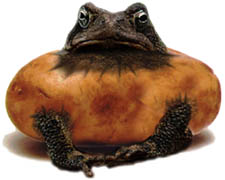|
Lecture On Ethics Of GE Next Thursday, the 23rd of November, a visiting Professor of Philosophy and Religious Studies from Princeton University, Dr Gary Comstock, will deliver a public lecture entitled, "Vexing Nature? On the ethical caseagainst genetic modification in agriculture". The seminar will be held be from 1 p.m. to 2 p.m. in the Wesley Hall at St John's/Trinity Theological College in St John's Rd. Dr Comstock has been brought to NZ to give evidence at the Royal Commission on Genetic Modification. He has produced a major work on the subject and is a gifted communicator. The lecture will be of relevance to anyone with an interest in this crucial subject from a theological, philosophical, bioethical or biological science perspective. Dr Gary L Comstock, Coordinator, Bioethics Program Professor of Philosophy and Religious Studies Here's the summary of Gary Comstock's submission to Royal Commission on GE. The ethical decisions about use of GM technology rest ultimately with New Zealanders but responsibility for developing a factual understanding rests with scientists. Science is a communal process devoted to discovery of knowledge, and open and honest communication based on two classes of values; epistemological values, and personal honesty and social responsibility. A method for addressing ethical issues includes balancing harm and benefits. To make a sound judgement nature and scope of harm must be determined; scientific information obtained; options defined; ethical principles identified. Three ethical theories are in common secular use; rights theory, utilitarianism, virtue theory. Ethical theorists are divided about which is best. Discussion about ethical dimensions of agricultural biotechnology is often confused by extrinsic and intrinsic objections. Intrinsic objections centre on the view that making GMOs is objectionable in itself because it's unnatural. This then breaks down into four sub-arguments; playing God; inventing world-changing technology; it is illegitimate to cross species boundaries; life is commodified. Each specific argument is answered and found to be unpersuasive. Religious perspectives are discussed on the basis that genetic modification is not necessarily inconsistent with God's desires for us. With respect to the views of a minority in a pluralistic society a number of ethical questions arise but it is important to recognise the impact of decisions on other parts of society. When carefully applied the three major ethical traditions converge on an answer that New Zealand continue to research, develop and use the technology responsibly and with appropriate caution.. . .
|

